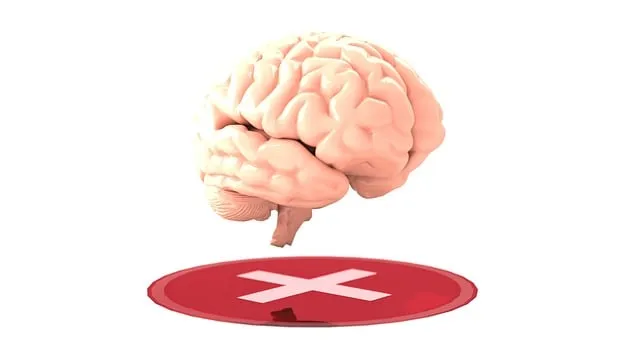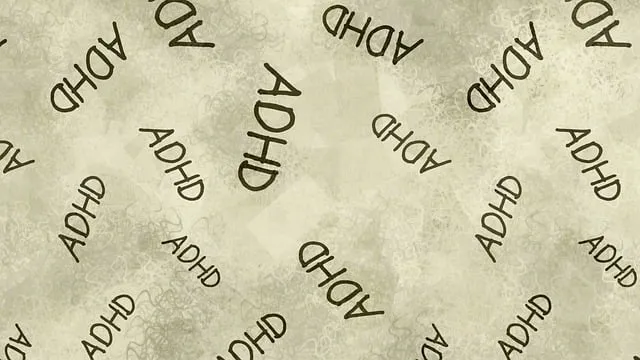Mental wellness group facilitation at Kaiser Arvada offers a supportive community for those navigating mental illness. Facilitators employ active listening, structured activities, and Mental Wellness Journaling to create safe spaces, reduce stigma, and develop coping strategies. The Community Outreach Program connects members to local resources, fostering collective support. These techniques, combined with expert guidance, empower individuals to manage stress, anxiety, and depression through accessible, affordable mental health services provided by Kaiser Arvada. Effective communication strategies and a holistic evaluation approach ensure successful group facilitation for improved mental wellness. Learn how to access these services to begin your journey towards better mental health.
Mental wellness group facilitation plays a crucial role in enhancing access to mental health services, as evidenced by Kaiser Arvada’s innovative approach. This article explores effective techniques for facilitating supportive group environments, guiding participants towards improved mental well-being. We delve into strategies like active listening, empathetic communication, and structured agendas to ensure engaging sessions. Additionally, we discuss how to measure success and provide insights into navigating challenges. Learn practical steps on how to access mental health services through Kaiser Arvada’s guidance.
- Understanding Mental Wellness Group Facilitation
- Kaiser Arvada's Role in Accessing Mental Health Services
- Effective Communication Strategies for Group Sessions
- Techniques to Foster a Supportive Group Environment
- Measuring and Evaluating Group Facilitation Success
Understanding Mental Wellness Group Facilitation

Mental wellness group facilitation involves leading and supporting a diverse range of individuals in a group setting to enhance their mental health and well-being. It’s a powerful approach, especially for those seeking support through Kaiser Arvada, as it offers a sense of community and shared experience. By fostering open dialogue and creating a safe space, facilitators can help participants navigate challenges related to mental illness, reduce stigma, and develop coping strategies.
Understanding the dynamics of group interactions is key to effective facilitation. Techniques such as active listening, reflection, and structured activities encourage participation and ensure every voice is heard. This approach not only benefits individuals struggling with their mental health but also contributes to wider Mental Illness Stigma Reduction Efforts. Additionally, integrating practices like Mental Wellness Journaling Exercise Guidance can provide participants with tools to track their progress and gain insights into their thoughts and feelings. Community Outreach Program Implementation can further enhance these groups by connecting members to local resources and creating a sense of collective support.
Kaiser Arvada's Role in Accessing Mental Health Services

Kaiser Arvada plays a pivotal role in accessing mental health services, offering a comprehensive range of resources tailored to meet diverse needs. As a leading healthcare provider, they understand the importance of mental wellness and strive to make services accessible and affordable for all. Through their dedicated team of professionals, Kaiser Arvada facilitates various group facilitation techniques that not only promote healing but also empower individuals with essential coping skills and resilience-building strategies.
These sessions cater to different demographics and focus on various aspects of mental health, including mood management. By engaging in these groups, participants learn effective ways to cope with stress, anxiety, and depression while fostering a sense of community and support. Kaiser Arvada’s approach ensures that individuals can navigate their mental health journeys with enhanced coping abilities and improved overall well-being.
Effective Communication Strategies for Group Sessions

In mental wellness group sessions facilitated by Kaiser Arvada, effective communication strategies are key to fostering a safe and supportive environment. Group facilitators should encourage open dialogue, actively listening to each participant’s experiences and perspectives. This not only promotes emotional healing processes but also ensures that everyone feels heard and valued, enhancing Mental Health Awareness.
Using inclusive language and creating opportunities for non-verbal expression can significantly benefit participants seeking mental health services through Kaiser Arvada. Techniques like reflecting back emotions expressed, summarizing key points discussed, and encouraging peer support help to build a strong group dynamic. These strategies contribute to the overall success of the session, aiming to improve Mental Wellness by providing a space where individuals can navigate their emotional challenges together.
Techniques to Foster a Supportive Group Environment

Creating a safe and supportive space is paramount for effective mental wellness group facilitation. One proven technique to foster this environment is through active listening. Group facilitators should demonstrate genuine interest in each member’s experiences, validating their feelings and thoughts without judgment. This encourages participants to open up, fostering a sense of belonging and trust. Additionally, using interactive activities and exercises that promote emotional expression can help break the ice and strengthen interpersonal connections.
Another vital method is ensuring equal participation by encouraging quieter individuals to share while also respecting those who volunteer frequently. Facilitators can achieve this through structured discussions, where each member has a turn to speak, and by incorporating diverse engagement strategies like round-robin sharing or small group breakouts. This inclusive approach mirrors Kaiser Arvada’s commitment to providing accessible mental health services, ensuring everyone feels heard and valued in the group setting. Moreover, integrating concepts from the Mental Wellness Podcast Series Production and focusing on inner strength development and emotional intelligence can further enrich the group dynamic, helping members navigate their journeys with enhanced coping mechanisms and resilience.
Measuring and Evaluating Group Facilitation Success

Evaluating the success of mental wellness group facilitation is a multifaceted process. It involves assessing both individual and collective progress. Facilitators can use structured questionnaires or semi-structured interviews to gauge participants’ emotional healing processes, positive thinking patterns, and self-esteem improvement. By comparing pre- and post-session surveys, facilitators gain insights into the impact of the group dynamic on each member’s mental health journey.
Additionally, observing participants’ engagement, interactions, and overall attendance provides valuable context. At Kaiser Arvada, for instance, how to get mental health services is integrated into this evaluation framework. Regular check-ins and feedback sessions allow facilitators to tailor their approach, ensuring that the group effectively supports members in cultivating positive thinking and enhancing self-esteem throughout their emotional healing processes.
Mental wellness group facilitation plays a pivotal role in enhancing access to mental health services, particularly through organizations like Kaiser Arvada. By employing effective communication strategies, fostering supportive environments, and measuring success, facilitators can revolutionize the way individuals receive support. Understanding these techniques is crucial for anyone looking to navigate the process of accessing mental health care through Kaiser Arvada, ensuring a more inclusive and beneficial experience for all participants.






